The world of supplementation is an industry that is constantly under fire from both experts and consumers, and most of the time for good reason.
The big problem with supplementation is the lack of quality research, overall lack of regulation in the business, and some majorly biased research being conducted in-house by the supplement companies themselves.
Much more often than people realize is that supplement companies fund their own research and measure certain guaranteed bio-markers in order to get a positive result for their new product.
It’s the marriage between science and marketing.
This often comes in the form of testing two groups’ body composition changes over a period of weeks while not controlling for protein intake and then measuring the results at the end of the period.
Meaning, one group will be given supplement company X’s protein product 3x per day and the other group will just simply be asked to train alongside the test group and act as a control group.
Then at the end of the several week period they will measure body composition changes and act as if their supplement brought in these massive performance / body composition parameters when it was really just a difference in daily total dietary protein intake. Real food would have done the exact same thing.
Examples similar to the above can go on forever in regards to how certain companies carefully design their own biased research, but I think you get the idea.
The real key is going through the research yourself or talking with a specialist who has the ability to go through the research him/herself and offer unbiased advice.
Top 10 Tips for Supplementation Research:
When doing your own research on a particular supplement, keep these in mind prior to coming to a conclusion:
1. When doing your own research, ensure you are collecting data from reputable sources such as textbooks, well designed research, journals, etc.
2. If not doing your own research, seek out well-read specialists. In addition to them being well-read, they should also understand the intricacies of hockey performance and provide references.
3. If there are in fact controlled studies on the supplement compound you’re researching, skim over the abstract and have a look at the sample size. Pass up animal studies unless you or someone in your family is a rat. If this is the case, I’m not sure if you’re going to be allowed on the ice.
4. Look for in vivo (human) studies. In vitro (outside of the body) and animal studies are mainly for generating a hypothetical base. They can be useful, but you can’t make concrete decisions from here because they do not represent what happens to the compound when in a real human body (as opposed to a petri dish).
5. Seek randomized controlled trials. Double-blind, placebo controlled, randomly assigned subjects, the whole deal. Relying on hearsay, what the guy at the supplement store said, correlations or associations is not ideal. Basically, you want replicated proof of cause and effect — and not somebody’s “opinion”
6. If the study is on humans, check out the sample sizes physiological state and whether that applies to you or not. They could be diseased, sedentary, overweight, healthy, etc. If the sample does not represent relevance to you then, very simply, it should not be relevant to you. These conditions vary greatly from one another and are often used to bias and make the results more impressive to use for marketability. For example, a label may say “L-Glutamine increased lean mass 2 kilograms in only 2 weeks!” — only to later find out that the study was done on burn victims and glutamine aided in the recovery process. This is very different then the lean mass you want as a hockey athlete from weight training.
7. Look at study length. Be skeptical of any compound claiming muscle growth/performance enhancement if the duration was less than a minimum 10-12 weeks. You can’t say something is going to promote muscle growth in a study done in a period less than this (and it is still stretching it), with so many complex feedback loops in the body. Nobody is slapping on pounds of muscle in less than a month because of a supplement, I promise you.
8. If the diet wasn’t controlled in the trial you don’t have much to go on, at all. Assessing the effectiveness of a supplement without controlling for caloric intake is not cause/effect. Calories and macronutrients are more important in the muscle building/performance enhancing world than anything else (from a nutritional perspective). If you don’t control these as best as possible you are offering far more questions than you are answers.
9. Compare the compound used in the study with the dose on the label. Oftentimes supplement companies will use an ingredient and say: “X supplement reduced time to fatigue by 30%!” — And then use only a fraction of the researched dose in their product. Always back check and make sure you are receiving an effective dose.
10. Assess for safety of use and seek out any contraindicating compounds that may cause a negative effect.
Bonus Tip: Be cautious at supplement stores. Most have a “foundation” product list that the store owner wants them to sell because those are the products with the best margins for profit.
I wrote up all of these tips for you because I take a lot of pride in giving the followers of HockeyTraining.com the best possible advice on the market today, and the best advice should only come in the form of true factual information.
I would never suggest anybody take anything on a whim. It needs to have the proper research and validity. I want you to be investing your money, not spending it.
Best Hockey Supplements
Now for those of you who have stuck with me thus far and have got through all my research jargon, let’s move on to my top 4 performance enhancing supplements for the game of hockey.
With sport specific supplementation, it’s important that you choose the correct supplementation to support the energy system(s) that are most relevant to your sport.
For example, if a supplement came along and improved only the anaerobic pathways to energy metabolism; that supplement would not be very beneficial to the marathon runner who uses primarily his/her aerobic energy system throughout the duration of competition.
In another example, an aerobic capacity enhancing supplement is not going to pay a powerlifter a whole lot of help to his bench press. These are apples and oranges.
This is where understanding the demands of your sport plays big dividends in all the decisions you make to improve your game. Just because a supplement has a “benefit” it doesn’t mean that benefit applies to you.
The physiology of what is happening on the ice changes how you train, how you eat and how you supplement. This is true for all sports, which is why athletes at the top level train completely different from one another, you have to support the needs of your sport.
To meet the specific needs of a hockey player, each supplement I recommend must:
1. Have well-documented research of positive performance enhancing ability.
2. Be safe for long-term use.
3. Effect performance not just in the gym, but on the ice as well. This means choosing products that are energy system specific for hockey athletes.
#1: Creatine Monohydrate
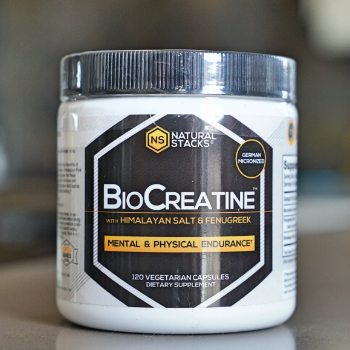 Creatine Monohydrate is without a doubt still the king creatine on the market, if you will refer to my article on creatine use for hockey players, you’ll quickly find out why. Creatine is a source of ATP (the energy currency of the body) and supplementing with creatine increases intra-muscular storage of creatine.
Creatine Monohydrate is without a doubt still the king creatine on the market, if you will refer to my article on creatine use for hockey players, you’ll quickly find out why. Creatine is a source of ATP (the energy currency of the body) and supplementing with creatine increases intra-muscular storage of creatine.
This improved storage delays anaerobic time to fatigue, you can compare this to not being fatigued as quickly during a high-intensity shift on the ice.
It also improves muscular power output and strength ability which helps you be able to knock out a couple more reps in the gym but also act as a stronger more powerful athlete on the ice. If you have read all my stuff, you know how important strength development is to hockey performance.
As mentioned in the sub-title, the best form of creatine to take is creatine monohydrate and it is also drastically cheaper than the other forms currently on the market. Don’t believe the hype of these “breakthrough” products.
Choose micronized creatine monohydrate.
This can be taken with or without food, and 5g (1 teaspoon) per day is the standard dose. No real timing strategies have been proven out thus far, simply take it when it is most convenient for you.
The only additional notes I could add to this is make sure you’re drinking lots of water daily, and for the people who say creatine is going to affect your cardiovascular conditioning in a negative way, it won’t.
Like I said, creatine supports the proper energy pathways to hockey performance which will actually lead to an enhanced level of conditioning — not reduced.
My Creatine Recommendation: “BioCreatine” from Natural Stacks
#2: Carbohydrate Powder
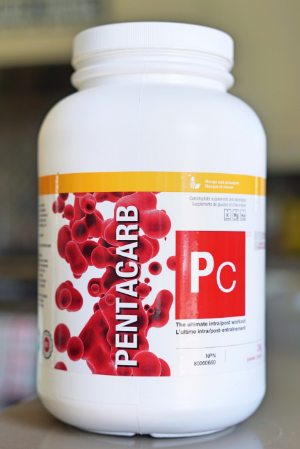 Carbohydrate powder is probably the most underrated supplementation tool in hockey today.
Carbohydrate powder is probably the most underrated supplementation tool in hockey today.
Carbohydrates are the preferred energy source for both the muscular system and nervous system, especially during anaerobic physical activity.
It’s important to fuel nervous system fatigue as well because nervous system fatigue can occur before local fatigue.
Meaning, if you’re training your biceps, your nervous system can the ability to fatigue before your actual biceps do, shutting down physical activity before muscular fatigue has truly been reached.
This is also without mentioning that we have known carbohydrates to improve performance parameters for decades now, both in strength/power movement and in endurance capacity/time to fatigue.
When it comes to performing to the top of your ability, you need to have readily available forms of glucose in your system ready to rock for muscular contraction.
The carbohydrates also secrete insulin, which up-regulates nitric oxide production in the body and allows for more blood flow to working muscles.
These effects contribute is a highly significant way to hockey performance.
Having said this, carbohydrates are not for all physical activity scenarios.
For hockey players, they should be had during resistance training sessions and during games.
For aerobic work and anaerobic conditioning sessions, they are short enough in duration where a simple carbohydrate + protein meal prior to physical activity will be enough to do the trick.
In my opinion, carbohydrates in a large water solution should be had during games instead of water, and also of course during resistance training. Many teams have just water on the bench and that’s ok, but if you can have your own mix on board you would be doing yourself a major performance and recovery favor.
Ideally, your carbohydrate mix should be a combination of simple sugars (sucrose, glucose, fructose, etc) and, depending on your size and the duration of activity, be aiming for anywhere between 20-40g carbohydrates during activity.
It’s important to note that you shouldn’t overdo your carbohydrate consumption, always test out how you feel with your mix in the gym before you try it during a game simply due to potential G.I. distress.
The last thing you want on the ice is a bloated stomach, so a little trial and error goes a long way here.
My Carbohydrate Powder Recommendation: ATP Pentacarb by ATP Labs
For more information on carbohydrate use always feel free to check out my other blog post that I have done on workout + hockey game day nutrition.
I also have done a full supplement guide for our off-season hockey training program which takes an exact look at all things supplementation and incorporates it with meal plan design.
#3 – Whey Protein
Whey is a semi-clear residue that is a liquid by-product of cheese production. After cheese curdles up, the filmy weird substance leftover is what hockey players should be slamming back post-workout and post-game.
Back in the old days, whey was just thrown away as a waste product of cheese production, but thankfully scientists found out that it is a complete protein source that we can use for muscle building, fat loss, and recovery enhancement.
Without a doubt it is the most popular protein product on the market today. It doesn’t taste bad, it’s cheap, the amino acid profile is very impressive, and whey contains the richest source of BCAA’s in existence.
You can take it anytime, although it’s particularly effective intra-workout and post-workout due to its rapid metabolization which causes a more dramatic spike in amino acids in the blood which in turn, stimulates muscle protein synthesis (muscle growth/repair) very quickly and effectively compared to other sources.
You will see it come in many forms which is typically defined by how much processing has been done and what type of processing has been done to the original product found in those cheese factories.
Concentrates are further processed into isolates, isolates can then be further processed into hydrolysates.
Isolates are the best and most well-rounded option of the bunch — research has shown hydrolysates absorb no faster (which was the original gimmick) than isolates and isolates are also typically lower in unnecessary fats and cholesterol compared to concentrates, while being cheaper than its non-superior more expensive counterpart in hydrolysates.
Although the fast absorption of whey is typically seen as a benefit, there are two edges to the sword here.
This same fast absorption that causes a quick rise in blood amino acid content and muscle protein synthesis, has a minimal effect of preventing protein breakdown and can also result in greater oxidation (burning off) of amino acids due to the body not wanting those high levels in the bloodstream.
Speedy in (high muscle protein synthesis), speedy out (won’t stick around to prevent protein breakdown rates).
This quick amino acid excess can exceed our body’s limit of use for them which can then push them towards oxidation, resulting in an anabolic effect but a very small anti-catabolic effect.
Although it’s important to note that if you add fats and fiber to the whey-contained meal it will slow the absorption of the amino acids into the bloodstream and make it act more like a “slow” protein.
Additionally, these extra fats and fibers will help decrease protein breakdown; solving the double-edged sword issue entirely.
Whey protein is a real tool in a hockey players arsenal as it has an incredible amount of research behind its efficacy at this point.
If you’re using it as a meal replacement, I would add fiber and fats like I mentioned above (this could be as simple as a banana and some peanut butter blended into the shake). But, whey truly shines as an intra and post-workout supplement.
10-15g intra-workout and 0.5g per kilo of bodyweight post-workout are both ideal recommendations. These recommendations also apply for your games.
You have to be careful though, because in the whey protein world, there is a lot of low-quality products. With my athletes, I see the absolute best results with ATP Labs Whey Isolate.
#4: Beta Alanine
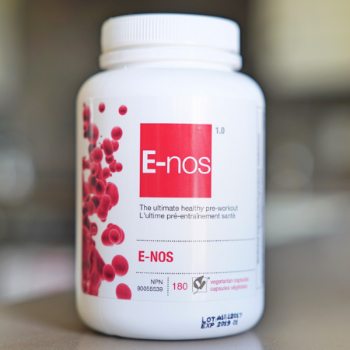 Beta Alanine was a up and comer in the 2000’s with some real hit studies, but also had a couple misses as well which temporarily delayed it sitting atop the mountain alongside creatine and carbohydrate powder.
Beta Alanine was a up and comer in the 2000’s with some real hit studies, but also had a couple misses as well which temporarily delayed it sitting atop the mountain alongside creatine and carbohydrate powder.
But as time passed, many more hits were had and beta alanine stood the test of time becoming an overwhelmingly supportive supplement for hockey performance.
Beta alanine in its original form is not what brings positive performance adaptation. Once it is in the body it binds with another amino acid known as L-histidine to create a compound called carnosine.
You know that burning feeling you get when exercise becomes extreme as our body tries to keep up with the demand of the effort? Well, that’s the accumulation of hydrogen ions and other fatiguing by-products (not lactic acid though, that myth was busted ages ago).
What carnosine does is it acts as a buffer between muscular contraction and the fatigue-inducing metabolites, delaying overall muscular fatigue.
To put it short, beta alanine helps to improve your endurance both on and off the ice by keeping the acidity (pH level) within your muscle cells balanced.
The good part?
Beta alanine works best in anaerobic capacity scenarios, making it bring about its most beneficial effect both in and out of the gym for hockey players energy system specific performance demands.
Dosing with beta alanine is simple. 2-5g per day and can be taken at any time of the day, it doesn’t need to be around your workout — and it is best absorbed when taken with a meal.
It’s also worth mentioning (many of you may have already felt this) that beta alanine can create a tingling, itchy feeling on your skin. This is a completely harmless side effect and is known as paresthesia.
If it becomes overwhelming for you, you can take smaller doses throughout the day to eliminate this feeling. Although it is my experience both with myself and with my athletes that once you have taken it for a couple weeks or so, the feeling goes away.
My Beta-Alanine Recommendation: ATP Enos by ATP Labs
Top Hockey Supplements Wrap Up
In conclusion, these are my top four supplements for improving performance both in and out of the gym for hockey athletes — although there are other products out there that work as well. These are just the Top 4.
In our Off-Season Hockey Training Program I wrote up a supplement recommendation guide for hockey players. I highly recommend that you sign up for the off-season program if you’re interested in learning more about the best supplements for hockey players.
Although these are my top four, I consider other supplementation to be “Conditionally effective”. Meaning, depending on your specific goals there may be some supplementation that can help you as an individual.
For example, two hockey players may play for the same team and even play the same position, but one may need to drop more body fat than the other and one may need to put on more muscle mass.
Other examples include improving quality of sleep or levels of testosterone for the older men’s league players.
This is why I offered up my top 10 supplementation research tips to go along with this article. If our Hockey Training Programs aren’t in the cards for you, I would strongly encourage you do the proper research necessary in order to customize your nutritional approach.




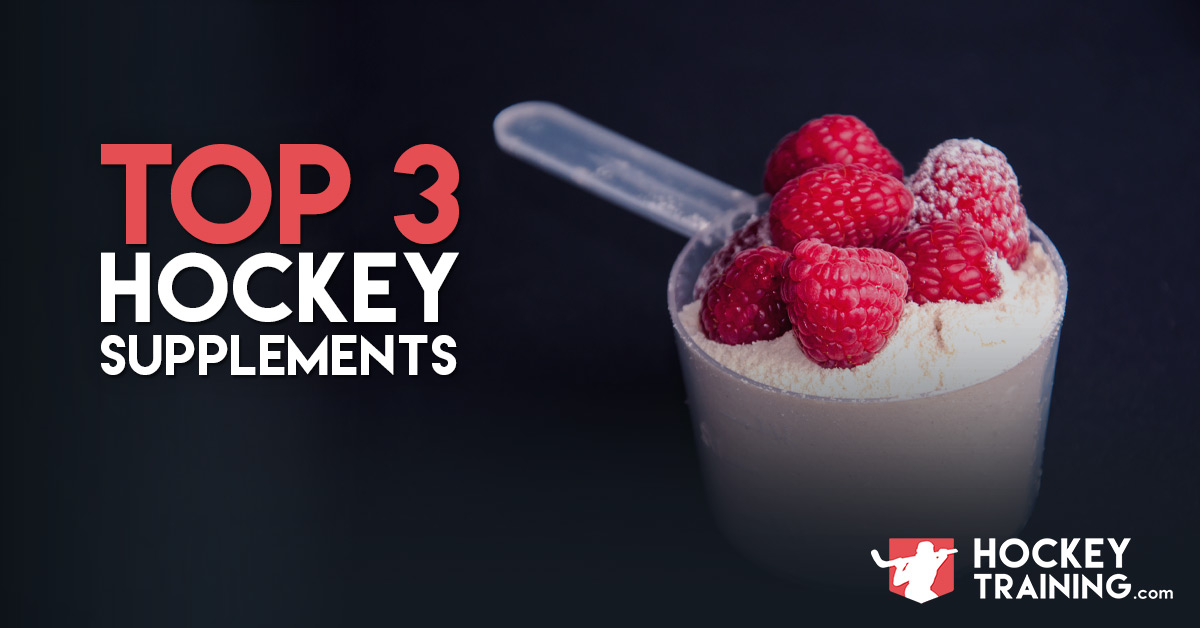


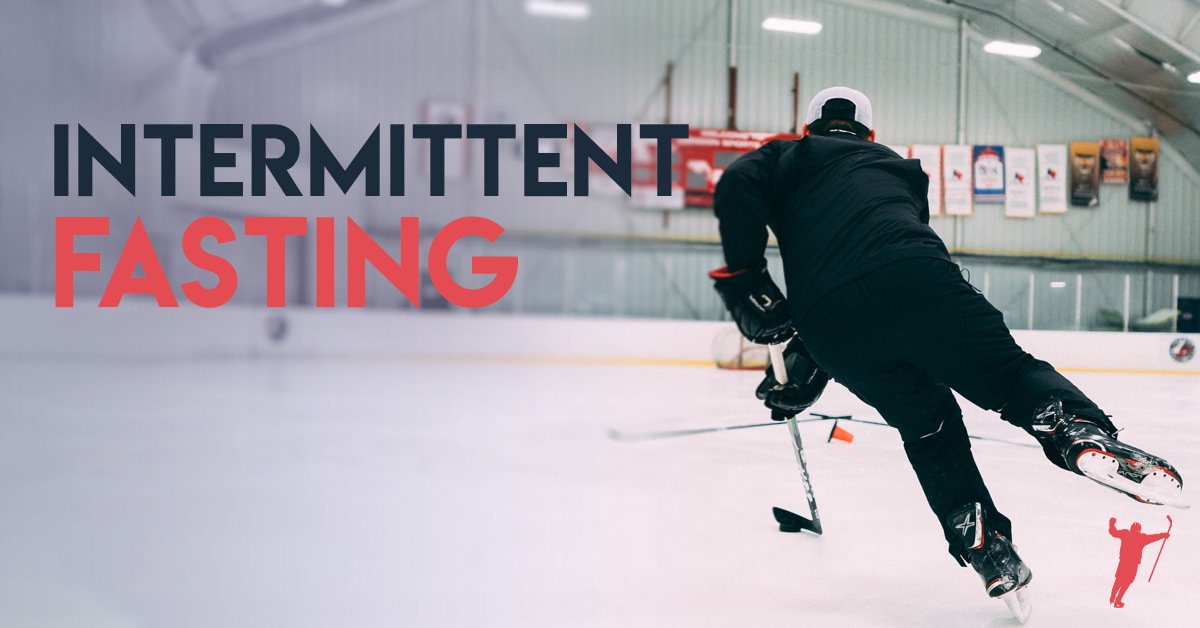
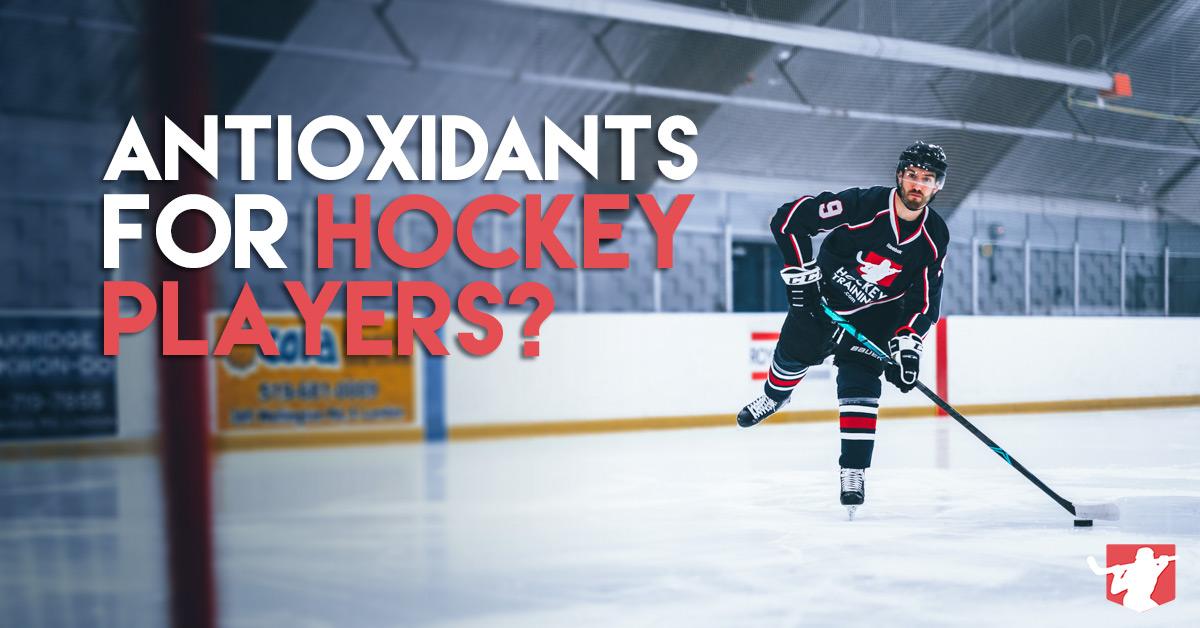

And what is whey protein I know you have talked about it in the past I am just unsure what is it and does? And Is BioSteel a good product for electrolytes?
Whey is a semi-clear residue that is a liquid by-product of cheese production. After cheese curdles up, the filmy weird substance leftover is what we are slamming back post-workout. Back in the old days it was just thrown away as a waste product of cheese production, but thankfully scientists found out it is a complete protein source that we can use for both health and body composition change.
Without a doubt it is the most popular protein product on the market today. It doesn’t taste bad, it’s cheap, the amino acid profile is very impressive and actually contains the richest source of BCAA’s in existence. You can take it anytime although it’s particularly effective post-workout due to its rapid metabolization which causes a more dramatic spike in amino acids in the blood which in turn, stimulates muscle protein synthesis very quickly and effectively compared to other sources.
You will see it come in many forms which is typically defined by how much processing has been done and what type of processing has been done to the original product. Concentrates are further processed into isolates, isolates can then be further processed into hydrolysates. Isolates being the best option of the bunch, as research has shown hydrolysates absorb no faster (which was the original gimmick) than isolates and isolates are also typically lower in unnecessary fats and cholesterol compared to concentrates.
Although the fast absorption of whey is typically seen as a benefit, there are two edges to the sword here. This same fast absorption that causes a quick rise in blood amino acid content and muscle protein synthesis also as a by-product of its speed has a minimal effect of preventing protein breakdown and can also result in greater oxidation (burning off) of amino acids due to the body not wanting those high levels in the bloodstream. This quick amino acid excess can exceed our body’s limit of use for them which can then push them towards oxidation, resulting in an anabolic effect but a very small anti-catabolic effect. Although it’s important to note that fats and fiber will slow the absorption of amino acids into the bloodstream and make it act more like a “slow” protein, additionally these extra fats and fibers will help decrease protein breakdown; solving the issue entirely.
Biosteel is an ok product for electrolytes, but there are cheaper products in existence that are just as good in my opinion, just have a look around.
BCAAs mixed with carb powder are great too also taking l-carnitine as a fat metabolizer converting your fat cells into energy while you play! One quick question are nitric oxide boosters good for hockey (i.e. l-arginine, agmatine sulfate, l-ornithine, citruline malate,etc..) I’ve always had that thought in mind and to add quickly I find pre workouts are terrible for hockey and a lot of players use them I’d only recommend them if you are a 4th line player because it keeps your heart rate up so you lose your edge and get cold legs.
There is no evidence L-carnitine is an effective fat burner unfortunately, this is a largely exaggerated effect perpetuated by the supplement industry to increase sales. Most athletes consume enough carnitine daily already through natural sources to meet the needs of the mitochondria to effectively burn body fat. Moreover, carbohydrates are what primarily drives optimal hockey performance, so I wouldn’t exactly be seeking a way in which to enhance fatty acid metabolism.
Citruline Malate and natural nitrite sources (such as beet root) are worth consuming 30mins prior to workouts or games to enhance nitric oxide production. But L-arginine and agmatine are far from proven in the literature as of right now.
Do you have any specific brand names to look for these suppliments at GNC or somewhere or?
The links in the article will take you to each supplement. I’d recommend buying them online vs a store like GNC
So I have been looking for a supplement to take pre and during game to give me a intense burst of energy and keep me going through the game. I want to know the best product to take with creatine before my games to give me that energy for the game. I would like to know what you would recommend I take before my games and what will give me the best energy benefit for the whole game
It’s important to differentiate between stimulation and energy. It can be common to mistake the two because the definitions are pretty close, but, stimulation more or less refers to an increase in catecholamines to spark up the body/mind (like the feeling you get after a caffeine shot). But, energy is what is providing the true sport specific fuel that’s going to actually give you the gas you need to last three periods of hard effort.
For stimulation and calorie (energy) free benefits, I like 3.2g beta alanine, 200mg caffeine, 6g citruline malate, 300-600mg Alpha GPC. This in combination with following the energy recommendations for protein / carbohydrate found in my game day nutrition articles is going to provide you the best environment for optimal output on the ice. I don’t recommend any one product, i’d suggest buying these separately in capsule form and taking them in that format so you can control exactly what’s going on.
So you should take beta alanine before games/practices as well as workouts correct?
Correct
Are you supposed to be using all of these supplements at the same time?(like in the same day)
Yup, these can all be run together and on the same day (but, not the exact same time. Still follow the timing guidelines above).
What about eaa in off season?
Hey Carl,
EAA’s are my favorite way to ensure enhanced hydration, performance, and anabolism during training — I am a major fan of them both in-season and off-season.
Make sure you check this video out because it’s the same drink I have my athletes take intra-workout (and not just during their games): https://www.youtube.com/watch?v=J5od-xJPkmI&t=
Hey Coach,
What are your thoughts on L-glutamine?
I think it’s great! I typically only ever use it as a “booster” though when normal diet and sleep strategies aren’t enough to handle the training volume load. Check this video out where I go more in-depth on exactly how to use glutamine and other recovery boosters: https://youtu.be/0OuC04E4UBQ